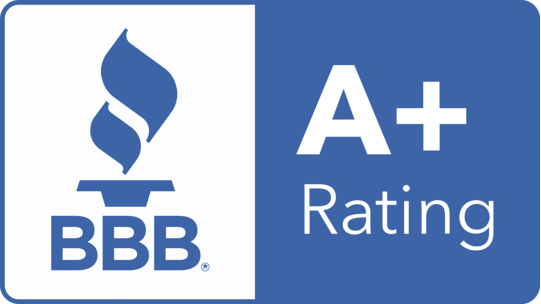HVC in Alabama
Evolving Housing Voucher Landscape in Alabama — What Landlords & Property Managers Should Know

In Alabama, the intersection of the housing voucher (often “Housing Choice Voucher Program,” or HCV) system and landlord/tenant law continues to evolve—creating both opportunities and challenges for landlords and property-managers who choose to participate. While Alabama has not enacted sweeping statewide reforms specifically targeting voucher tenants, there are key-process developments and regulatory dynamics that are shaping how voucher tenancy operates in real-world practice.
1. Voluntary Participation & Source-of-Income Considerations
One of the foundational realities in Alabama is that
landlords are not required to accept voucher tenants. According to a recent overview of Alabama regulations, landlords can legally decline tenants who use voucher subsidies as long as no other protected class discrimination (race, disability, familial status, etc.) is involved.
For landlords, this means that deciding whether to participate in the voucher program remains a strategic choice. Some of the considerations:
- Accepting voucher tenants can mean access to a broader pool of renters and to subsidised rent payments (which may reduce rent-default risk).
- On the flip side, voucher participation often requires compliance with additional inspection and administrative processes, which can increase overhead.
- Because Alabama lacks a “source of income” anti-discrimination statute, landlords who choose not to accept vouchers still remain in compliance with state law, though they must ensure no other discrimination motive is present.
tenant-rights.com+1
For property managers or landlords considering voucher participation, the implication is that the decision is still voluntary—but one where the “costs vs. benefits” calculation is increasingly worth reviewing in today’s rental market.
2. Voucher-Program Compliance & Housing Authority Processes
When a property owner does opt into the voucher program, several process elements have become more salient for Alabama landlords and managers:
- Properties typically must pass an inspection by the local housing authority (or its contracted inspector) to ensure they meet the program’s Habitability / Housing Quality Standards (HQS). This means owners may need to budget for repairs or upgrades before the first voucher tenancy begins.
- The lease and tenancy must align with both the standard lease and the housing authority’s HAP (Housing Assistance Payment) contract. That usually means the lease cannot contradict voucher program rules (e.g., for rent increases, terminations, etc.).
- Because voucher payments have two components—tenant portion + subsidy portion—property owners should monitor that the housing authority disburses subsidy payments timely, and that voucher tenants are kept compliant (especially relative to recertification deadlines).
By integrating voucher-program administrative tracking into property-manager workflows, owners can reduce surprises (for example, delayed subsidy payments or inspections failing).
3. Risk & Opportunity for Landlords
Participating in the voucher system brings both potential advantages and areas for caution. On the opportunity side:
- Voucher-assisted tenants often represent lower default risk (since subsidies cover a portion of the rent).
- Property owners who market to voucher-eligible renters may reduce vacancy times in certain markets.
- Accessing subsidized rents helps in economic downturns when tenant income might otherwise be unstable.
On the caution side: - The inspection and recertification processes introduce administrative and timing risks (for example, a failed inspection could delay subsidy payments or require landlord expenditures).
- While landlords can refuse voucher tenants under state law, they still must ensure they do not engage in illegal discrimination (for example, rejecting a voucher tenant because of disability, or family status). Federal rules still apply. legalservicesalabama.org+1
- Lease termination or non-renewal of a voucher-tenant must be handled with the same legal care as any tenancy; voucher landlords cannot rely on easier “exit” simply because of voucher status.
4. Practical Steps for Alabama Landlords & Property Managers
Given the above realities, here are some practical take-aways for landlords and property managers in Alabama:
- Decide upfront whether you will accept voucher tenants. If yes, build the process into your standard leasing workflow (inspection readiness, lead-time for approval, subsidy payment verification).
- Maintain property condition proactively so as to pass voucher inspections and reduce risk of failure. Ensure you budget for periodic upgrades.
- Have clear lease addenda that incorporate both your lease terms and voucher program requirements (for example, what happens if tenant fails recertification).
- Track the rental subsidy payment flow—monitor housing authority payments and tenant portion—as you would any other tenant rent stream.
- Be consistent in screening standards. While source of income isn’t a protected class in Alabama, you still must not discriminate for other prohibited motives (race, disability, etc.). Review your marketing, screening policy, and record-keeping to avoid inadvertent violations.
- Understand your rights and obligations under the state landlord-tenant law (Alabama Uniform Residential Landlord and Tenant Act) as well as the federal voucher-program regulations. Staying informed helps avoid administrative or legal pitfalls.
For Alabama landlords and property managers, the rental-voucher space remains a viable and often beneficial segment—but it requires intentional process adaptation. By understanding the voluntary nature of participation, aligning property-condition standards with housing-authority expectations, and maintaining disciplined screening and lease-management practices, owners can leverage the stability of subsidy-based rent while minimizing the administrative and compliance risks. As rental markets continue to shift and housing-policy pressures evolve, staying ahead of voucher-program process changes will increasingly become a differentiator for savvy property operators.































